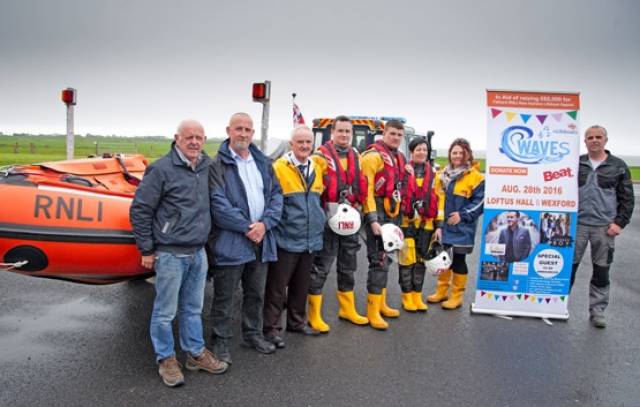#RNLI - Irish country music sensation Nathan Carter is set to headline the inaugural Waves Music Festival on Sunday 28 August 2016 at Loftus Hall in the historic coastal area of Hook Head.
The family-themed day-long music event is being run in aid of the Fethard RNLI fundraising appeal, which is set to raise €65,000 needed for a new inshore lifeboat due to be placed on service in Fethard at the end of 2017.
Performing alongside Nathan Carter will be home-grown group Corner Boy and new to the Irish music scene, Wexford’s own Elmore.
A further act is set to be announced in the next few weeks which will be cause a great deal of excitement among the teenage audience, ensuring that the day appeals to all the family.
RNLI in conjunction with Beat will be providing the opportunity for one lucky artists within the south east to perform live and kick off the festival on the Sunday.
Momentum Events have joint forces with the Fethard RNLI fundraising team and will create a dedicated family kids area within one of the walled gardens. This will allow a secure play area for the full family to enjoy.
Loftus Hall proprietor Aidan Quigley said: "Loftus Hall is delighted to support the RNLI and offer our unique and unusual venue for the event. This year Loftus Hall celebrates its 666th anniversary."
Fethard RNLI volunteer lifeboat press officer Rebecca Doyle also commented: "The Waves Music Festival is the first music festival the RNLI have undertaken in the South East and it is a huge privilege for us to be given this opportunity.
"The event has a capacity of up to 5,000 people and a purpose built event site will be created at Loftus Hall for the occasion, creating a picnic style theme for the summer event.
"We are particularly thrilled to have an artist of the calibre of Nathan Carter play the festival. Nathan has a huge following in Ireland and his shows have been packing out venues across the country.
"We hope that people locally will support this great event and that we will welcome many visitors to the area on the day. While loads of fun will be had, this festival has its roots in a great cause and that is saving lives at sea and supporting the work of the charity on the South East coast."
Gates open at 11am and the concert finishes at 8pm. Tickets for the daylong event are €25 each with €85 for a family of four. For more information visit www.wavesfestival.ie.































































